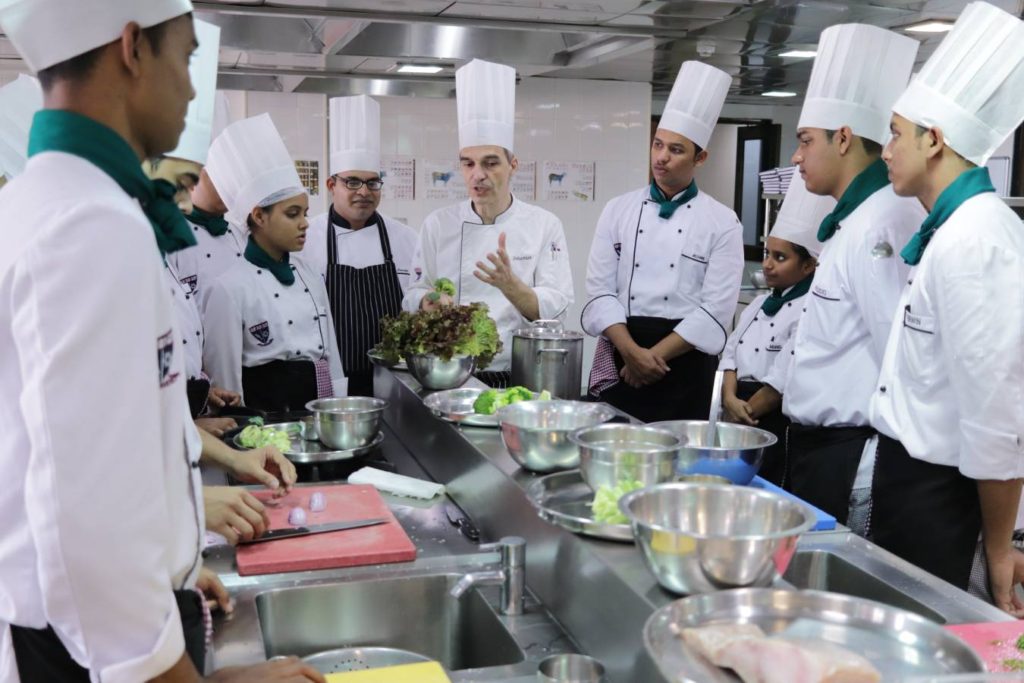The hospitality and travel industry has always been one of the world’s fastest-growing sectors. Over the past decades, the Indian tourism and hospitality industry has emerged as one of the key drivers of growth among the services sector in India.
In the trends seen in the recent past, the post Covid phase has witnessed a resurgence in travel fuelled by better connectivity and ease of flying. With an advancement in technology, hotel rooms can now be booked with a click of a button. From budget hotels to five star properties and home stays to boutique resorts, there is something for every traveller.
The world is changing rapidly due to advancements in technology. It is therefore imperative that individuals and professionals take time off to upgrade their skills so that they remain relevant to the industry. The way we do business is certainly going to change due to greater use of technology. We all need to gear up for it.
The need for a world-class institute in India has never been stronger. Professional hospitality institutes are churning out well qualified professionals every year. Trained professionals, of course, have an advantage over untrained graduates as hotels would rather not invest in the training of new recruits.
Embarking on a career in culinary arts can be hugely rewarding. Constantly interacting with people, working within a team of professionals, creating culinary delights, pursuing a career in culinary education and learning something new every day are some of the perks.
The industry is people centric and hence in constant need of skilled personnel. Students who opt for a career in the Hospitality and Culinary industry should be willing to be open to learning, be friendly, undergo rigorous training and be willing to work long hours. The rewards are job satisfaction, social interaction with individuals and good pay packages.
There are a number of departments one can opt to work in. Food and beverage service, kitchen, spa services, housekeeping, front office operation, sales and marketing, accounting, engineering and leisure are some of the key departments. Candidates must be willing to work in various areas of operation as the profession may demand it.
Besides starred hotels, professionals can also opt to work in the airline industry, manage boutique hotels and homestays, cruise liners, hospitality institutes, cafes, restaurants or an alternate entrepreneurial venture. Other sectors such as banking, healthcare, IT and corporates also have a requirement of skilled professionals.
The hospitality industry overall provides a diverse range of experiences. It is often considered as one of the most exciting careers, but there is a lot of work and effort involved behind the scenes. However, with the positive growth of this industry, students with an inclination towards this career have a bright future ahead.

V. M. Salgaocar Institute of International Hospitality Education (VMSIIHE)-Goa.
(The article has been authored by Prof. Irfan S. Mirza, CHE, Director and Principal, V. M. Salgaocar Institute of International Hospitality Education (VMSIIHE)-Goa. Affiliated to the Goa University, VMSIIHE offers two Degree Programs, B.Sc. Culinary Arts and B.Sc. International Hospitality Management and one Master’s Program, M.Sc. International Hospitality and Tourism Management. VMSIIHE has collaborated with Turismo de Portugal for a ‘Collaborative International Training and Education Programme’.
VMSIIHE has signed a Memorandum of Understanding (MOU) with Swiss Education Group that runs the prestigious César Ritz Colleges Switzerland and Culinary Arts Academy, Switzerland.
VMSIIHE students after successful completion of the degree program have an option to pursue higher education at these institutes in Switzerland.


